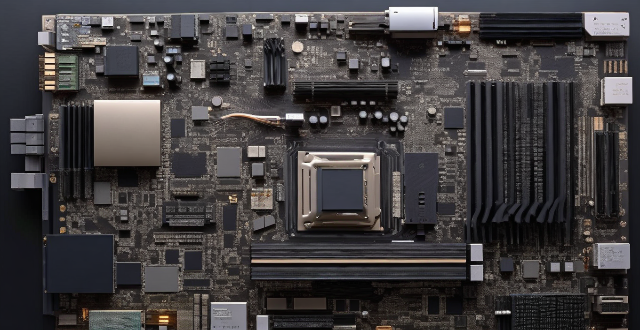The motherboard is a crucial component in a computer system as it serves as the central hub for connecting and communicating all other hardware components. It provides connectivity and communication, power distribution, expansion capabilities, system stability and performance, and future-proofing. Choosing a high-quality motherboard is essential when building or upgrading a computer system to ensure it meets specific needs and requirements.

The Importance of a Motherboard in a Computer System
The motherboard, also known as the mainboard or system board, is one of the most crucial components in a computer system. It serves as the central hub that connects and communicates all other hardware components within the system. In this article, we will explore the importance of a motherboard in a computer system.
1. Connectivity and Communication
The motherboard provides the necessary pathways for communication between different components in the computer system. It contains various connectors and slots that allow the installation of peripherals such as memory modules, expansion cards, and storage devices. Without a motherboard, these components would not be able to interact with each other, resulting in a non-functional computer system.
2. Power Distribution
The motherboard plays a vital role in distributing power to different components within the computer system. It contains power supply units (PSUs) that convert electrical energy from the wall outlet into usable voltage levels for the various components. This ensures that each component receives the correct amount of power needed to function properly.
3. Expansion Capabilities
The motherboard provides numerous expansion slots and ports that enable users to add additional functionality to their computer systems. For example, users can install graphics cards, sound cards, network cards, and other expansion cards to enhance their system's capabilities. These expansion options are made possible by the motherboard's design and layout.
4. System Stability and Performance
The quality and features of a motherboard can significantly impact the overall stability and performance of a computer system. A high-quality motherboard with advanced features such as overclocking support, multiple PCIe slots, and optimized power delivery can improve system responsiveness, stability, and overall performance. On the other hand, a low-quality motherboard may lead to system crashes, compatibility issues, and reduced performance.
5. Future-Proofing
Investing in a high-quality motherboard can future-proof your computer system by providing support for upcoming technologies and standards. For example, a motherboard with support for the latest CPU sockets and memory standards can accommodate future upgrades without the need for a complete system replacement. This can save users money in the long run and ensure their system remains up-to-date with the latest technology advancements.
In conclusion, the motherboard is an essential component of any computer system. Its importance lies in its ability to provide connectivity, power distribution, expansion capabilities, system stability, and future-proofing. When building or upgrading a computer system, it is crucial to choose a high-quality motherboard that meets your specific needs and requirements.